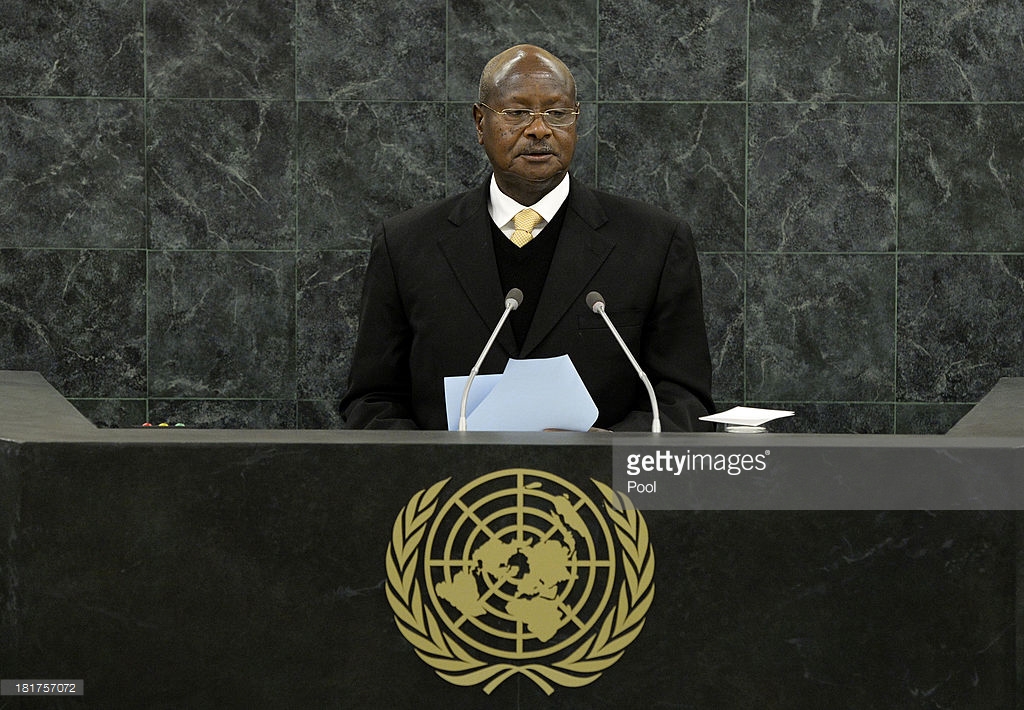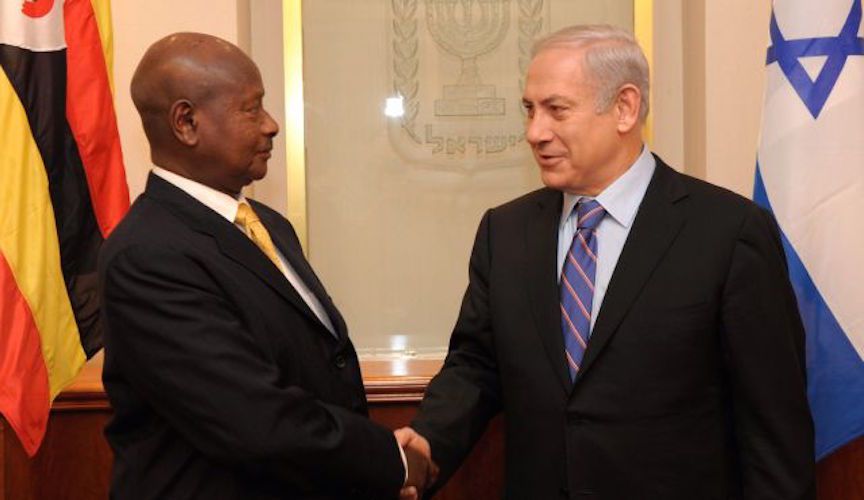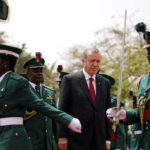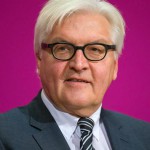Amid unprecedented security arrangements, President Yoweri Museveni will today receive Israel Prime Minister Benjamin Netanyahu here on a one day state visit.
Netanyahu first visited Uganda in 2005, before becoming prime minister for a second time in 2009.
Uganda and Israel enjoy modest relations, especially on matters of security and intelligence.
Police will close and oversee the traffic flow for Entebbe-Kampala Highway during Netanyahu’s visit. A source at CAA reveals that the airport will be off limit for hours and very busy because the Israel leader’s delegation will come with no less than four planes; one plane will be chartered and hold the Prime Minister’s Bureau, another plane will carry 140 people to Entebbe and will include IDF soldiers who participated in the Entebbe operation and some of the hostages, and two Hercules planes will have the Netanyahu’s motorcade inside of them as well as a field hospital which is to be donated at the end of the trip.
After Uganda, the trip will see the Prime Minister visit Rwanda, Kenya, and Ethiopia.
Entebbe raid
Museveni and Netanyahu will preside over a ceremony to commemorate 40 years since the Entebbe operation. The ceremony will take place in the old terminal where over 100 Israelis and Jews were held hostage by Palestinian and German terrorists.
“The raid at Entebbe was for us a very dramatic national experience. For me, obviously, one of great personal consequence,” Netanyahu said, according to an Israeli English daily, The Jerusalem Post.
“It has always been his (Netanyahu’s ] desire to set foot in Uganda again, especially at Entebbe, where his brother was killed in 1974,” says Mr James Mugume, the permanent secretary in the Ministry of Foreign Affairs.
On July 4, 1976, a group of Israeli commandos covertly raided Entebbe airport on a rescue mission of 248 passengers/hostages aboard an Air France passenger plane that had been hijacked a week earlier by Islamist outfits of the Popular Front for the Liberation of Palestine.

The then Idi Amin government, which sympathised with the Palestinian cause, had welcomed the hijackers. The hijackers had separated the Israeli hostages from the rest of the group, and moved them to a derelict building at the airport.
In the 90-minute night operation executed by commandos, 102 Israeli hostages were rescued.
About 45 of Amin’s soldiers are said to have been killed during the mission while there were four casualties on the Israeli side, including the unit commander, Lt Col Yonatan Netanyahu, who was also Mr Netanyahu’s older brother.

That bloody hostage rescue mission was condemned by the UN Secretary General as “a serious violation of the sovereignty of a United Nations member state”.
UN Palestine vote
The appropriation of Palestine in 1948 – the year of Israel’s spontaneous foundation – incidentally set the stage for a less amicable period in Israeli-Ugandan relations
As a matter of fact, President Museveni has visited Israel on three occasion while dozens of African Presidents including Kenyan President Uhuru Kenyatta and Liberian President Ellen Johnson Sirleaf have also frequented the Middle East nation in the recent past.
Consequently Israel is hoping that the visit – the first by an Israeli prime minister to Uganda and sub-Saharan Africa in three decades is very much hinged on attaining Uganda and other African states’ support in international forums.
No doubt Israel wants them to side with it at the UN, where the General Assembly overwhelmingly recognized Palestine as a nonmember observer state in 2012. The Palestinians have used their upgraded status to launch a diplomatic offensive against Israel and its occupation of lands where the Palestinians hope to establish a future state.
EagleOnline understands that the Israeli are talking with Uganda, Kenya, Rwanda, and Ethiopia alongside 41 other countries in sub-Saharan Africa who vote in one bloc at the UN so Netanyahu wants to improve relations with these countries … and wants more countries to not vote against Israel at the UN.

In general, President Museveni, like several of his like-minded compatriots on the continent, like the flexibility of this ‘aid on demand’ approach, while many the West are at unease with it. They worry that it may enable the aid-receiving countries’ political leaders to site projects according to their personal or political needs, rather than according to the needs of the recipient population.
Military aid
It should be understood that Israel has a long history of involvement in Uganda, sending experts in agriculture and development, as well as military advisers and mercenaries, over the years.
However Israel’s prominent role in assisting Uganda in the 1960s later crumbled in the 1970s when Arab countries pressured Uganda then under President Idi Amin to limit or cut ties with Israel.
While Israeli military relations are limited, observers intimate that President Museveni could be looking back to the Jewish nation to help him provide security training and assistance especially breaking ties with the Democratic People’s Republic of Korea (DPRK), or North Korea , and the country is noted for providing training and expertise for the Uganda Police as well as the provision of “non-lethal” equipment.
For Uganda, abandoning ties with DPRK meant deepening ties with South Korea while trying to rekindle a relationship with Israel as well.
While this assistance remains crucial, President Museveni, now in his fifth term in office – the last one under the Constitution – on the other hand is preoccupied with looking for money for ambitious infrastructure projects to complement his legacy.
Terrorism
Cited is Israel’s deployment of a team of security experts following the 2013 al-Shabab attack on a Nairobi mall so Israel, with its vast experience fighting militants, could continue to offer training on terror prevention which fight Museveni has been at the forefront over the years .
Mr Okello Oryem, the state minister for International Affairs, recently said that the regional heads of state summit will “basically discuss ways of how to fight terrorism but that will be after his [Netanyahu’s] private moment.”
Israel’s defence chief of staff Gadi Eisenkot supplemented that their country will continue putting emphasis on fighting terrorism.

Oil refinery deals
Uganda being an emerging oil and gas frontier in the region, the other under looked component is that back in 2011 during a four-day working visit to Israel, President Museveni met Israeli oil investors and discussed the possibility of them setting up a refinery in the country, a statement from his office said.
Mr Museveni is said to have met officials of Mini Refineries Enterprises Limited, an Israeli oil refinery company and it is believed the same officials are part of Netanyahu’s delegation of Israeli businessmen with him in cooperation with the export institute thus oil business discussions might surface.
Unfortunately South Korea’s SK Engineering and Construction Company are now primed to take charge of the development of the Uganda’s proposed Shs4b Greenfield oil refinery.
Unwanted Jewish/African refugees
A three month investigation in 2014 showed how – covertly – Uganda was receiving Israeli refugees and taking arms in return to keeping them here or transiting them to their home country. Despite numerous government denials, tickets, photos and videos of Israeli refugees expose the grim nature in which the deportations are carried out and accepted by Uganda.
When the accusation was first drawn that the Ugandan government was taking Israeli refugees in exchange for arms, government officials were quick to deny the allegations.
Foreign affairs ministry officials, on top of denying the allegation said the deportations from Israel would be in contravention of established International law practices that Uganda ascribes to. But the allegation held and probably might now be true.
A few months after denying the allegation, Israeli government officials would shift their pronouncements from the non-existence of the deal to ‘the deal is not completely unfounded’. Haaretz, a leading agency in Israel quoted the Israeli Interior minister Gideon Sa’ar, in September last year, saying the deal for the transfer of refuges from Israel to Uganda is not completely unfounded.
But while the Israeli government officials shifted goal posts on the matter, the government back in Kampala stayed firm, assuring the press from month to month that the government wasn’t taking any refugees from Israel.
While the government denied the allegations, they didn’t deny that Israel had approached them to act as a transit country for refugees. Infact, Foreign Affairs minister Okello Oryem in an interview with the EastAfrican newspaper would pronounce that indeed Uganda had been approached to host unwanted refugees of Eritrean and Sudanese origin.
Then, under the deportation agreement, Uganda was enlisted in none other than a mission to secure Israel’s own borders, which are under threat from “infiltrators” apparently so indistinguishable from one another in their blackness that they can be repatriated to any old place in Africa.









